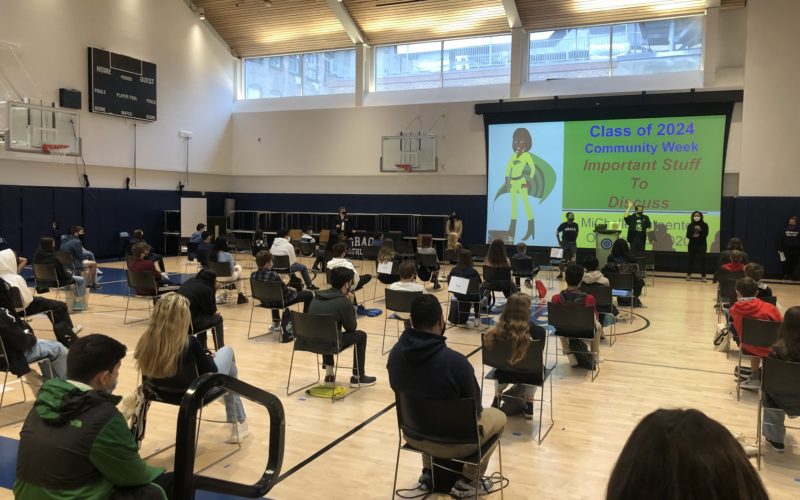Thoughts on Grace’s First Intersession Week
This past week we had our first intersession week. Because of Covid and Grace’s reluctance to be completely virtual, they decided to split our school into two cohorts: Cohort A and Cohort B. This shift put a major strain on everyone, both students and teachers alike. In order for each grade to build community skills, allow the students to have a break, catch up on school, self regulate, and manage, Grace implemented an intersession week that only asks for two hours of work per night.
In addition, Pollyanna focus groups were also integrated into the Grace intersession to allow for students to come together and have discussions about racism at our school. While everyone thought it was going to be a relaxing break, it ended up being the complete opposite.
For many, last week was hours of schoolwork on top of each other, no sleep, all-nighters almost every night, college supplements to write, and barely time for a break because the work kept piling up. In an interview with a junior who wishes to remain anonymous, they said, “I was disappointed in how intersession week went. We thought it was going to be time used to do community building and anti-racist learning, when really what happened was it was used as an excuse for an overload of work and a way to advertise as though we were doing anti-racist work.”
Over the course of the year, Grace has led many discussions about racism and what Grace has and or hasn’t done, whether that is in a community meeting, grade meeting, or advisory period. However, it seemed as if these Pollyanna groups didn’t receive the attention they deserved. In a typical year, if an issue of racism or an act of racism was done at our school, the faculty would immediately send out a notification saying we are going to have a community meeting as soon as possible. So, why was the faculty not as involved or commanding when it came to these focus groups? It just doesn’t make any sense.
Jaden Sorkin ‘20 said, “The administration clearly wanted to make it public that they were doing something to both combat racism while giving their students a necessary break. Yet it was executed poorly as both antiracist talks were only optional and advertised by the students. The school seems to care more about their reputation than the wellbeing of the student body.” It is very clear that much of the student body was upset about the way the Pollyanna groups were discussed. It’s confusing why these groups weren’t mandatory and why the only follow-up emails about these groups were sent by students, including Kai Williams ‘20 and Sahana Sridhar ’21.
Similarly, another student wrote, “I attended both meetings offered to me. The Pollyanna focus group and the SDC meeting. Both were only brought to my attention by students themselves. I believe I received an email about the Pollyanna group over a week before intersession week (before I knew what intersession week was) and then was never reminded of it again. With community meetings, chapels, etc we get at least 3 emails reminding us to attend, I am confused why the same energy wasn’t brought to these groups. The only reason I knew about the Pollyanna group was due to Kai William’s email to the 12th grade.” Many students want to understand why the students of the twelfth grade were more on top of making sure anyone who was free during that time could come rather than Grace faculty members who helped make these focus groups possible?
An upperclassman who wishes to remain anonymous wrote, “If I were to make changes to intersession week, I would have made the Pollyanna groups mandatory because, in order for it to be impactful for the whole community and for the Pollyanna members gathering information, it can’t just be a few Grace members who choose to attend. Also, if not mandatory, I would have liked it to be included in the dean emails (including the zoom link) because I know some didn’t attend because they didn’t know it was occurring.”Obviously, changes need to be made to intersession week moving forward as students are unhappy with the overload of homework, disappointed with the faculty about the Pollyanna groups, and the poor state of their mental health. Although this was the first of many intersession weeks, it is obvious there is a need for improvement.

